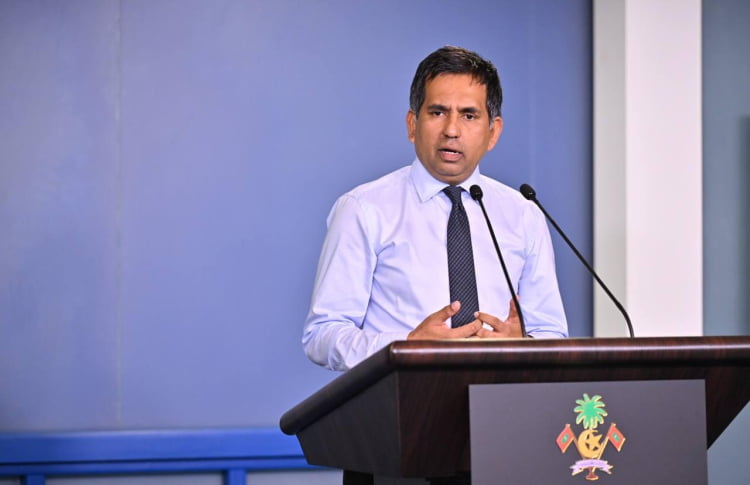
The Maldives, renowned for its breathtaking natural beauty and vibrant tourism sector, is emerging as an attractive hub for various investment opportunities. This archipelago’s economic landscape is undergoing significant transformation, driven by a commitment to sustainable development and diversification. While tourism remains a cornerstone of the Maldivian economy, the government actively encourages investments across different sectors to ensure balanced and inclusive growth.
Central to the Maldivian government’s strategy is the emphasis on sustainability. The nation’s unique ecological footprint necessitates a focus on environmentally responsible investments. Policies have been crafted to attract investors who are committed to projects that align with the Maldives’ long-term environmental and economic goals. This approach not only safeguards the islands’ natural resources but also enhances the viability and appeal of investment ventures.
Among the key sectors ripe for investment are renewable energy, fisheries, and information technology. The Maldives’ reliance on imported fossil fuels presents a significant opportunity for renewable energy projects, including solar and wind power. These initiatives are supported by government incentives and a favorable regulatory framework aimed at reducing the carbon footprint and ensuring energy security.
The fisheries sector, a traditional mainstay of the Maldivian economy, offers abundant opportunities for sustainable and value-added investments. Innovations in aquaculture, processing, and export can capitalize on the rich marine biodiversity and the global demand for high-quality seafood.
Furthermore, the burgeoning information technology sector holds promise for investors. The government’s vision of a digitally empowered Maldives includes initiatives to enhance digital infrastructure, promote tech-based startups, and integrate IT solutions across various industries. This digital transformation is poised to drive economic growth and create a dynamic business environment.
In essence, investing in the Maldives presents a unique blend of profitability and sustainability. By aligning investment projects with the nation’s developmental aspirations, investors can contribute to a prosperous and ecologically balanced future.
Renewable Energy: Harnessing Solar Power
The Maldives, renowned for its picturesque beaches, is progressively becoming a hub for renewable energy investments, particularly in solar power. This tropical paradise, blessed with abundant sunlight year-round, presents an ideal environment for harnessing solar energy. Recognizing this potential, the Maldivian government has introduced a series of incentives and policies to attract investments in renewable energy, positioning the nation as a frontrunner in sustainable practices within the region.
One of the primary drivers behind this push towards solar energy is the country’s commitment to reducing its dependency on imported fossil fuels. The Maldives’ strategic vision includes transitioning to renewable energy sources to ensure energy security and mitigate the adverse effects of climate change. To this end, the government has implemented favorable policies, such as tax breaks, grants, and streamlined regulatory processes, to encourage both local and international investments in this sector.
Existing projects, such as the installation of solar panels across various islands and the development of solar farms, exemplify the Maldivian dedication to renewable energy. Upcoming initiatives, including large-scale solar power plants and integrated solar energy systems, further underscore the nation’s commitment to sustainable energy solutions. These projects not only aim to meet the energy demands of the local population but also contribute to the global efforts in combating climate change.
Investing in solar energy in the Maldives offers numerous advantages. The initial investment can lead to long-term cost savings due to the reduction in fuel import costs and the decreasing prices of solar technology. Additionally, solar power investments align with environmental goals, significantly reducing the carbon footprint and promoting cleaner air and water. Aligning with global sustainable practices, these investments also enhance the investor’s reputation and open doors to collaboration with international organizations focused on environmental sustainability.
In conclusion, the shift towards renewable energy, particularly solar power, presents a promising avenue for investments in the Maldives. The country’s natural resources, coupled with supportive government policies and a clear commitment to sustainability, make this an opportune moment for investors to explore and capitalize on the burgeoning renewable energy sector.
Real Estate: Luxury Resorts and Private Villas
The Maldivian real estate market has seen remarkable growth, particularly in the luxury segment, attracting global investors seeking lucrative opportunities. The allure of pristine beaches and crystal-clear waters makes the Maldives an ideal destination for high-end real estate investments, especially in luxury resorts and private villas. As demand for exclusive accommodations continues to rise, the market presents promising prospects for substantial returns on investment.
Key investment destinations within the Maldives include islands such as Malé, Hulhumalé, and the atolls of Ari, Baa, and Raa. These regions have garnered attention due to their strategic locations, natural beauty, and robust tourism infrastructure. Investors are drawn to the potential for high occupancy rates and premium pricing, driven by the Maldives’ reputation as a top-tier luxury travel destination.
Current market trends indicate a surge in the development of high-end resorts and private villas, with many projects focusing on sustainability and eco-friendly practices. This trend aligns with the global shift towards responsible tourism, enhancing the appeal of Maldivian properties to environmentally-conscious investors and tourists alike. Additionally, the integration of cutting-edge technology and bespoke services in these properties sets them apart in the competitive luxury market.
The regulatory environment for investing in Maldives real estate is relatively investor-friendly. The government offers incentives such as long-term leases for resort development and streamlined processes for obtaining necessary permits. Foreign investors can own land through long-term leases, typically up to 99 years, providing a stable and secure investment framework.
Several success stories highlight the potential of the Maldivian luxury real estate market. Notable examples include the development of iconic resorts like Soneva Fushi and The Ritz-Carlton Maldives, which have set new benchmarks in luxury hospitality. These projects have demonstrated significant returns on investment, driven by high occupancy rates, premium pricing, and strong brand recognition.
In summary, the luxury real estate market in the Maldives offers compelling investment opportunities. With strategic locations, favorable market trends, supportive regulatory frameworks, and inspiring success stories, investing in Maldivian luxury resorts and private villas presents a promising avenue for discerning investors seeking high returns and long-term value.
Telecommunications: Advancements and Connectivity
The telecommunications sector in the Maldives has witnessed substantial growth, spurred by technological advancements and a burgeoning demand for enhanced connectivity. As an archipelago comprised of numerous islands, efficient and reliable telecommunications infrastructure is pivotal for the nation’s socio-economic development. The current state of telecommunications in the Maldives demonstrates a robust framework supported by both public and private sector initiatives aimed at modernizing and expanding the network.
The Maldivian government has been proactive in implementing policies to bolster telecommunications infrastructure. These initiatives include partnerships with international technology providers to upgrade existing networks and the introduction of high-speed internet services across the islands. The government’s commitment to digital transformation is evident in its strategic plans to increase internet penetration and improve service quality, making investing in Maldives’ telecommunications sector an attractive prospect.
Emerging opportunities in this sector are vast, driven by the increasing reliance on digital communication. The rise in remote work and digital nomadism, particularly spurred by the global pandemic, has underscored the necessity for robust telecommunications services. This shift has amplified the demand for high-speed internet and reliable mobile networks, presenting lucrative investment opportunities for both local and international investors.
Moreover, the telecommunications sector plays a critical role in supporting other industries, most notably tourism. As the Maldives is a top destination for tourists worldwide, seamless connectivity is essential for enhancing visitor experiences and ensuring the smooth operation of tourism-related businesses. Innovations in telecommunication technologies can further augment the tourism sector by facilitating advanced services such as virtual tours and real-time travel assistance.
The potential for growth and innovation in the telecommunications field in the Maldives is substantial. Investment in this sector is not only beneficial for the investors but also critical for the nation’s overall economic progress. As the Maldives continues to prioritize digital transformation, the telecommunications sector is poised to become a cornerstone of future development, offering myriad opportunities for growth and technological advancements.







